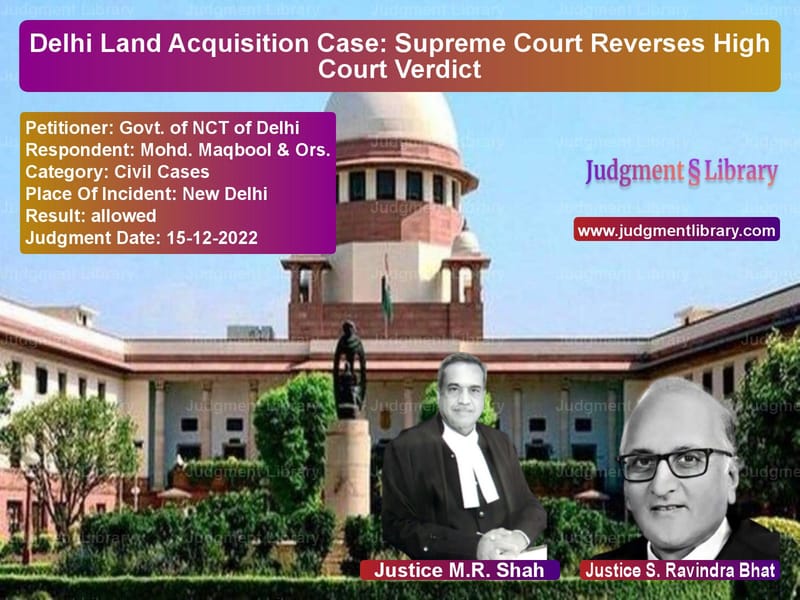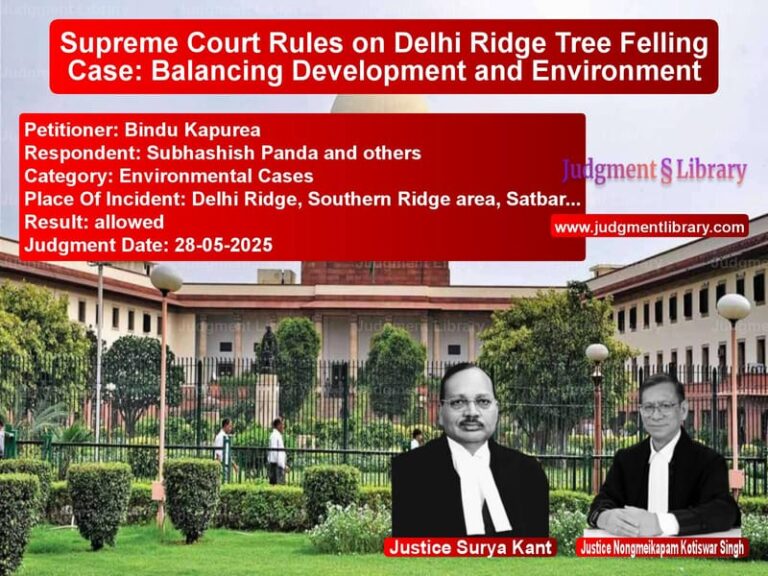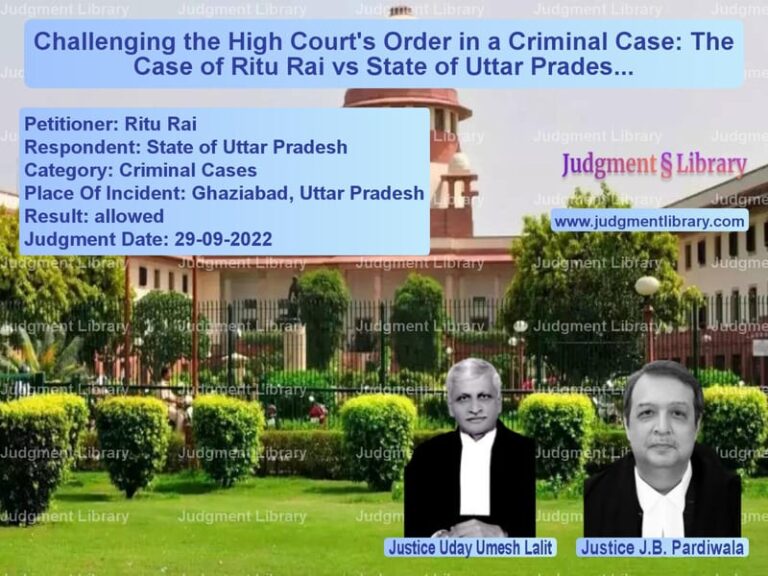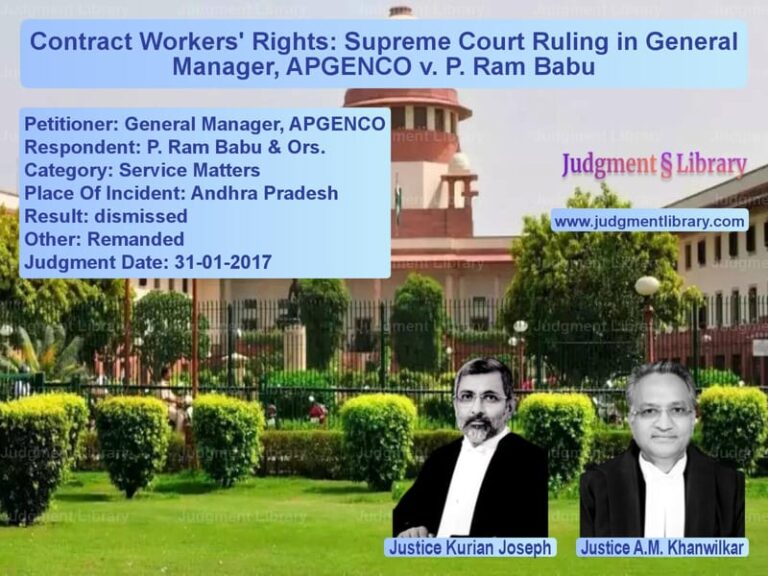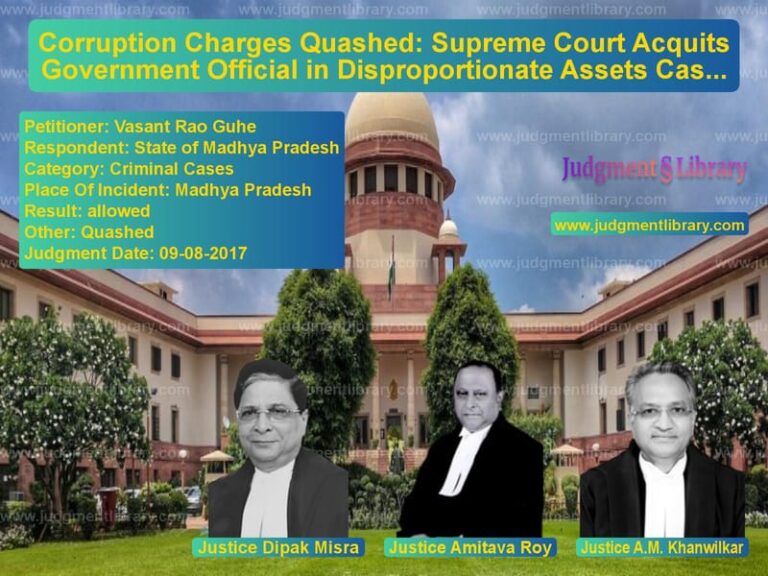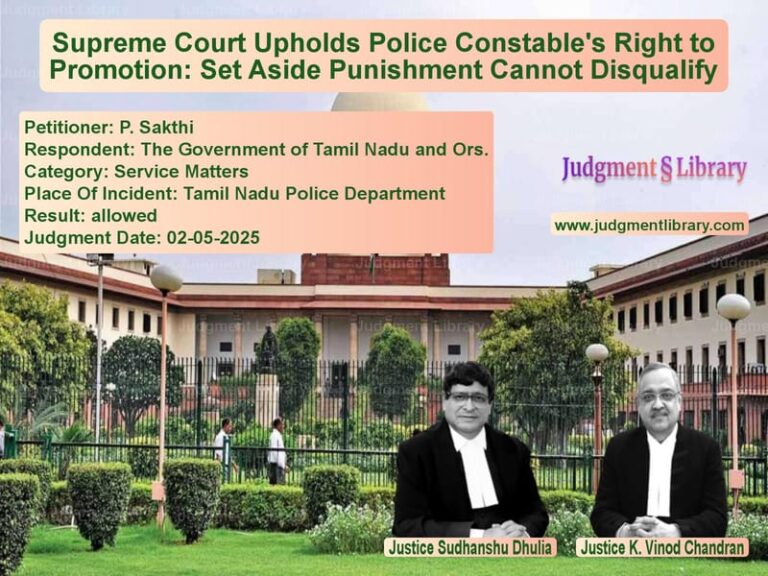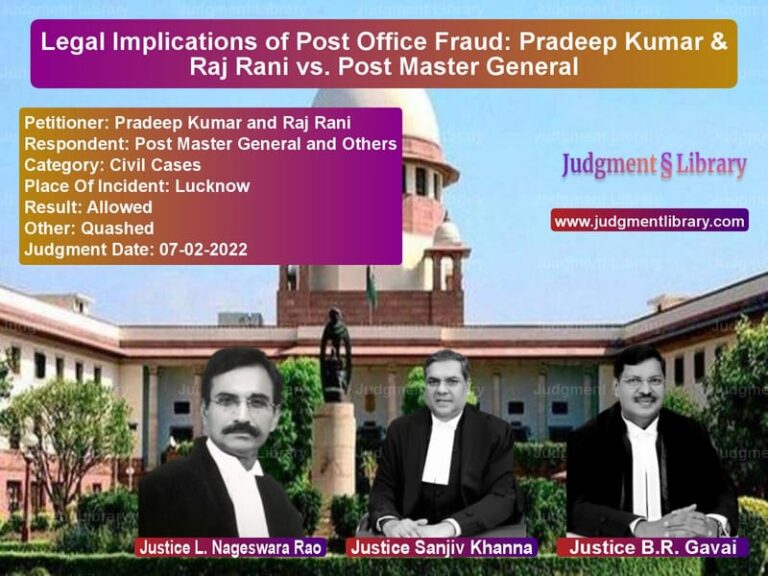Delhi Land Acquisition Case: Supreme Court Reverses High Court Verdict
The Supreme Court of India recently delivered a crucial judgment in the case of Govt. of NCT of Delhi vs. Mohd. Maqbool & Ors., addressing the applicability of Section 24(2) of the Right to Fair Compensation and Transparency in Land Acquisition, Rehabilitation and Resettlement Act, 2013 (hereafter referred to as the 2013 Act). The case revolved around whether a land acquisition process initiated in 1960 had lapsed due to non-payment of compensation, as claimed by the respondents. The Supreme Court overruled the decision of the Delhi High Court, reaffirming the validity of the land acquisition and rejecting the claim that it had lapsed.
Background of the Case
The dispute pertained to land acquisition initiated by the Government of NCT of Delhi under the Land Acquisition Act, 1894 (hereafter referred to as the 1894 Act). The timeline of the acquisition was as follows:
- November 10, 1960: Notification under Section 4 of the 1894 Act was issued for acquiring land.
- January 6, 1969: A declaration under Section 6 of the 1894 Act was made, confirming the government’s intention to acquire the land.
- January 31, 1983: The award for the acquired land was announced.
- March 4, 1983: Possession of the land was taken and handed over to the Delhi Development Authority (DDA).
- 2015: The respondents challenged the acquisition in the Delhi High Court, seeking a declaration that the acquisition had lapsed under Section 24(2) of the 2013 Act due to non-payment of compensation.
Arguments by the Respondents (Mohd. Maqbool & Others)
The respondents, led by Mohd. Maqbool, argued that under Section 24(2) of the 2013 Act, the land acquisition process should be deemed to have lapsed because compensation had not been paid to them. They relied on the Supreme Court’s judgment in Pune Municipal Corporation & Anr. vs. Harakchand Misirimal Solanki & Ors. (2014), which had held that failure to tender compensation to landowners resulted in automatic lapse of land acquisition.
Arguments by the Appellant (Govt. of NCT of Delhi)
The Government of Delhi, represented by the Land Acquisition Collector, countered:
- Possession of the land was taken on March 4, 1983, and handed over to the DDA.
- As per the latest judgment in Indore Development Authority vs. Manoharlal & Ors. (2020) 8 SCC 129, land acquisition does not lapse merely due to non-payment of compensation.
- Under the ruling in Indore Development Authority, for acquisition to lapse under Section 24(2) of the 2013 Act, two conditions must be satisfied: (a) possession has not been taken, and (b) compensation has not been paid. Since possession had been taken in 1983, the claim for lapse was untenable.
Supreme Court’s Judgment
The Supreme Court ruled in favor of the Government of NCT of Delhi and quashed the Delhi High Court’s judgment. Key observations included:
- The High Court had erroneously relied on Pune Municipal Corporation, which had been overruled by the Constitution Bench in Indore Development Authority.
- Under the revised legal position, land acquisition does not lapse merely because compensation was not paid; the twin conditions of non-possession and non-compensation must be met.
- Since possession of the land had been taken and handed over to the DDA in 1983, the acquisition remained valid.
The Supreme Court quoted the following passage from Indore Development Authority to reinforce its ruling:
“Under Section 24(2), land acquisition lapses only if, due to inaction of authorities for five years or more prior to the commencement of the 2013 Act, possession has not been taken nor compensation has been paid. If one of these conditions is met, the acquisition does not lapse.”
Impact of the Judgment
The ruling has significant implications:
- It upholds the government’s land acquisition powers and prevents automatic lapsing of acquisitions under the 2013 Act.
- Landowners cannot claim lapse solely on the ground of non-payment of compensation if possession has already been taken.
- The decision strengthens the authority of Indore Development Authority as the leading precedent on land acquisition matters.
Conclusion
The Supreme Court’s ruling in Govt. of NCT of Delhi vs. Mohd. Maqbool & Ors. reinforces the principle that land acquisition cannot be undone solely on the basis of non-payment of compensation if possession has been taken. By overturning the High Court’s ruling, the Supreme Court has reaffirmed the legal clarity provided in Indore Development Authority, ensuring that government acquisition processes remain valid unless both possession and compensation requirements are unmet.
The appeal was allowed, and the land acquisition proceedings were upheld as valid.
Petitioner Name: Govt. of NCT of Delhi.Respondent Name: Mohd. Maqbool & Ors..Judgment By: Justice M.R. Shah, Justice S. Ravindra Bhat.Place Of Incident: New Delhi.Judgment Date: 15-12-2022.
Don’t miss out on the full details! Download the complete judgment in PDF format below and gain valuable insights instantly!
Download Judgment: govt.-of-nct-of-delh-vs-mohd.-maqbool-&-ors.-supreme-court-of-india-judgment-dated-15-12-2022.pdf
Directly Download Judgment: Directly download this Judgment
See all petitions in Property Disputes
See all petitions in Landlord-Tenant Disputes
See all petitions in Judgment by Mukeshkumar Rasikbhai Shah
See all petitions in Judgment by S Ravindra Bhat
See all petitions in allowed
See all petitions in supreme court of India judgments December 2022
See all petitions in 2022 judgments
See all posts in Civil Cases Category
See all allowed petitions in Civil Cases Category
See all Dismissed petitions in Civil Cases Category
See all partially allowed petitions in Civil Cases Category

